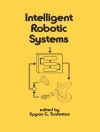Until the late eighties, information processing was associated with large mainframe computers and huge tape drives. During the nineties, this trend shifted towards information processing with personal computers, or PCs. The trend towards miniaturization continues. In the future, most of the information processing systems will be quite small and embedded into larger products such as transportation and fabrication equipment. Hence, these kinds of systems are called embedded systems. It is expected that the total market volume of embedded systems will be significantly larger than that of traditional information processing systems such as PCs and mainframes. Embedded systems share a number of common characteristics. For example, they must be dependable, efficient, meet real-time constraints and require customized user interfaces (instead of generic keyboard and mouse interfaces). Therefore, it makes sense to consider common principles of embedded system design.
Embedded System Design starts with an introduction into the area and a survey of specification languages for embedded systems. A brief overview is provided of hardware devices used for embedded systems and also presents the essentials of software design for embedded systems. Real-time operating systems and real-time scheduling are covered briefly. Techniques for implementing embedded systems are also discussed, using hardware/software codesign. It closes with a survey on validation techniques.
Embedded System Design can be used as a text book for courses on embedded systems and as a source which provides pointers to relevant material in the area for Ph D students and teachers. The book assumes a basic knowledge of information processing hardware and software.
Tabla de materias
Specifications.- Embedded System Hardware.- Standard Software: Embedded Operating Systems, Middleware, and Scheduling.- Implementing Embedded Systems: Hardware/Software Codesign.- Validation.
Sobre el autor
Dr. Peter Marwedel received his Ph D in Physics from the University of Kiel in 1974. He is one of the early researchers in high level synthesis, working on the MIMOLA system for a number of years. Dr. Marwedel is a professor at the University of Dortmund since 1989. He has served as the chairman of the computer science department, has played a leading role in establishing the Design, Automation and Test in Europe (DATE) conference and is the chairman of the Informatik Centrum Dortmund (ICD), a technology transfer centre.












